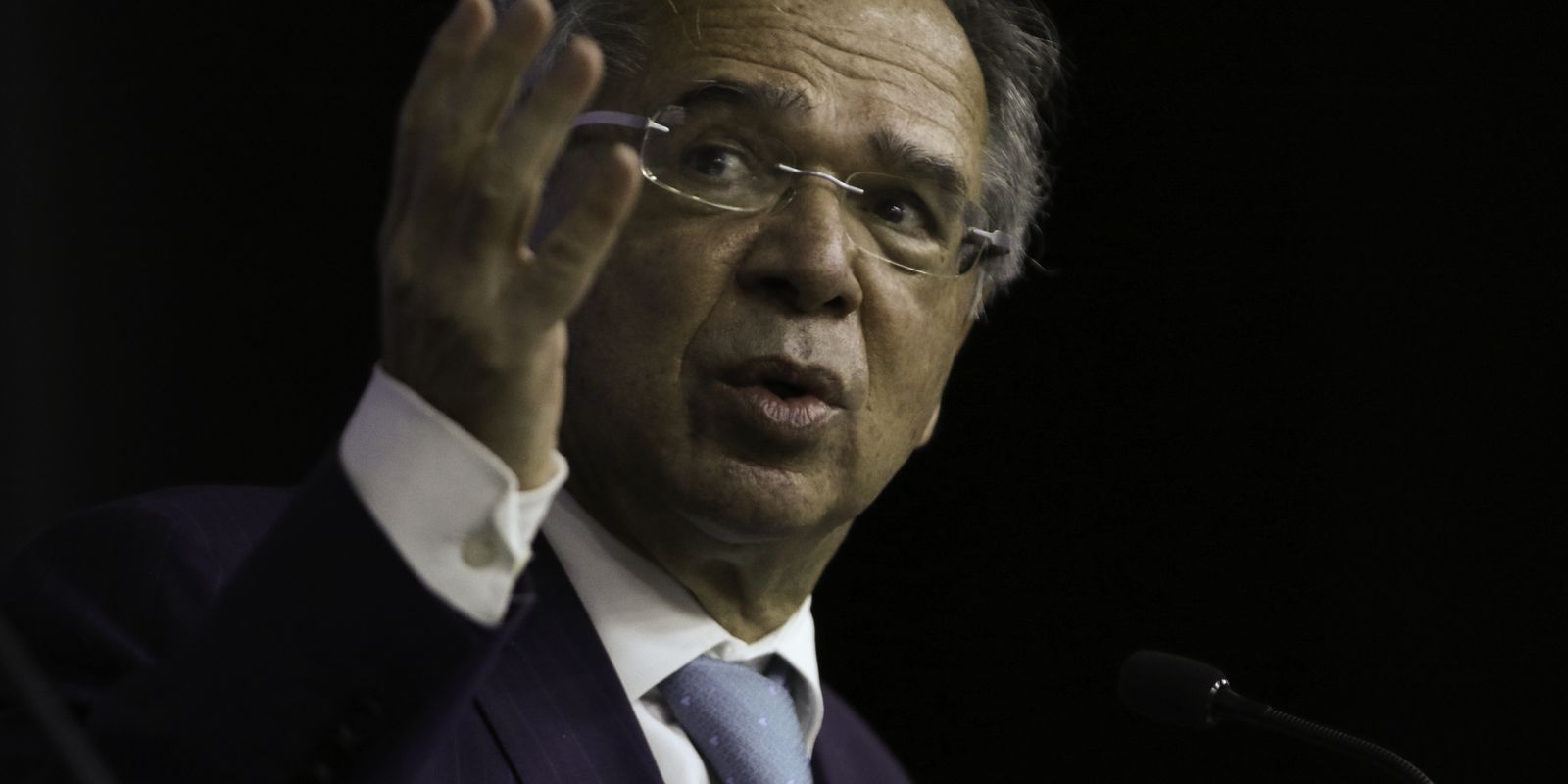The Minister of Economy, Paulo Guedes, said today (1st) that the government is considering a “moderate” reduction of some taxes in the preparation of the Proposed Amendment to the Constitution (PEC) on Fuels. The purpose of the measure is to avoid successive increases in fuel prices. Guedes pointed out that the government is studying reducing taxes on diesel, but questioned the adoption of a similar measure for gasoline.
“We are studying this very sparingly, looking exactly at taxes that could be moderately reduced. It may be that [em] a [imposto] about diesel [se] can go a little further. But, about gasoline, after all, if we are transitioning to a green economy, if we are transitioning to a digital economy, should we subsidize gasoline?”, asked the minister at a virtual event on the Brazilian economy held by Credit Suisse bank. .
According to the minister, the proposal would be “authoritative”, with the adhesion of states to, among other measures, reduce the rates of the Tax on the Circulation of Goods and Services (ICMS). In return, the government also would reduce federal taxes incidents on the product, such as the contribution of the Program for Social Integration and Formation of Public Servant Assets (PIS/Pasep) and the Contribution for Financing Social Security (Cofins).
“If you want to reduce ICMS, reduce ICMS for Brazil to run better on diesel. On the other hand, if the federal government is also authorized; we raised around R$ 17 [bilhões], almost R$ 18 billion/year of diesel; we could reduce that a little bit there too,” he added.
The minister also said that the problem is political and cited a project approved in the Chamber of Deputies that establishes a fixed value for charging ICMS on fuel.
Currently, ICMS is calculated as a percentage of the final price. This causes the tax to fluctuate according to the prices at the pumps, rising when Petrobras readjusts the values at the refineries and falling when the opposite occurs.
The project obliges states and the Federal District to specify the ICMS rate charged for each product by the unit of measurement adopted (liter, kilo or volume), and no longer based on the value of the goods, as currently occurs. The proposal awaits Senate review.
“If they think they have to limit ICMS, and leave ad valorem [percentual conforme o valor da mercadoria] for ad rem [valor fixo] and limit, instead of being 34%, let it be 25%, 20%. It’s a political problem, I don’t get into that discussion. Now that it’s welcome, instead of just thinking about a spending cap, thinking about a tax cap, I like the idea,” he said.
The successive increases in the price of fuel generated an arm wrestling between the federal government and the states. Several times over the past year, President Jair Bolsonaro has attributed to the states part of the responsibility for fuel increases. The federal government advocates that ICMS be charged as a fixed price per liter, as is the case with federal taxes.
In the midst of the president’s statements, the state finance secretaries approved, during a meeting of the National Committee for Finance Policy (Confaz) the extension until March 31, of the ICMS freeze on fuels, which is levied on the weighted average price to the final consumer (PMPF). The freeze, approved last October, would end on the 31st of January.
However, the governors say that the freeze is not enough and argue that the central elements of the fuel increases are the “change in the dollar and Petrobras’ policy of parity with the international oil market”, according to a letter from the National Committee of Secretaries of Treasury of the States and the Federal District, released last week.
As a solution, the states defend the creation of a fuel price stabilization fund, which would avoid transfers to the consumer. During this Tuesday’s event, Guedes spoke out against the creation of a fund. According to the minister, more than 80% of stabilization funds from other countries “failed”.









